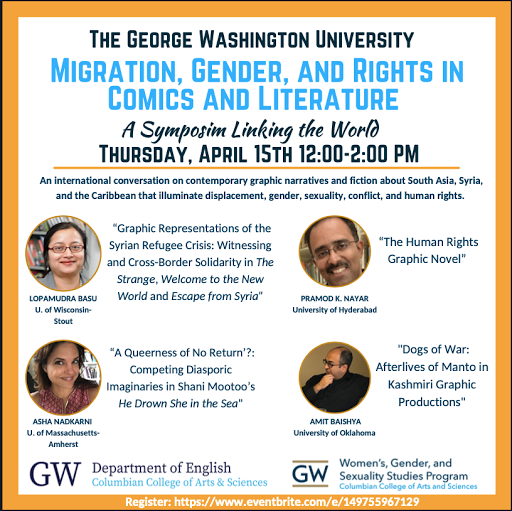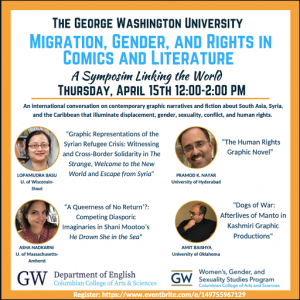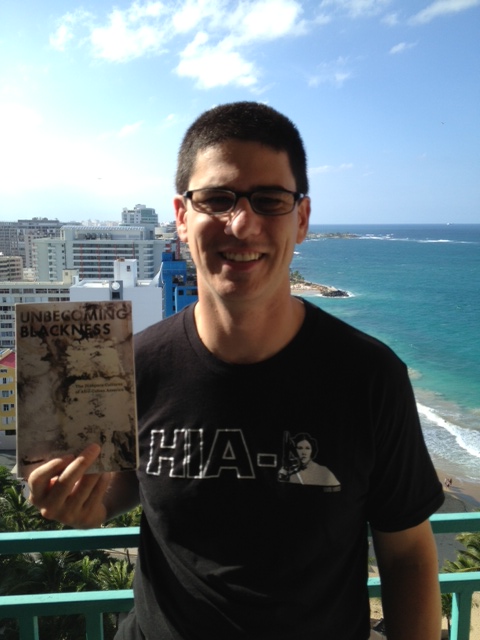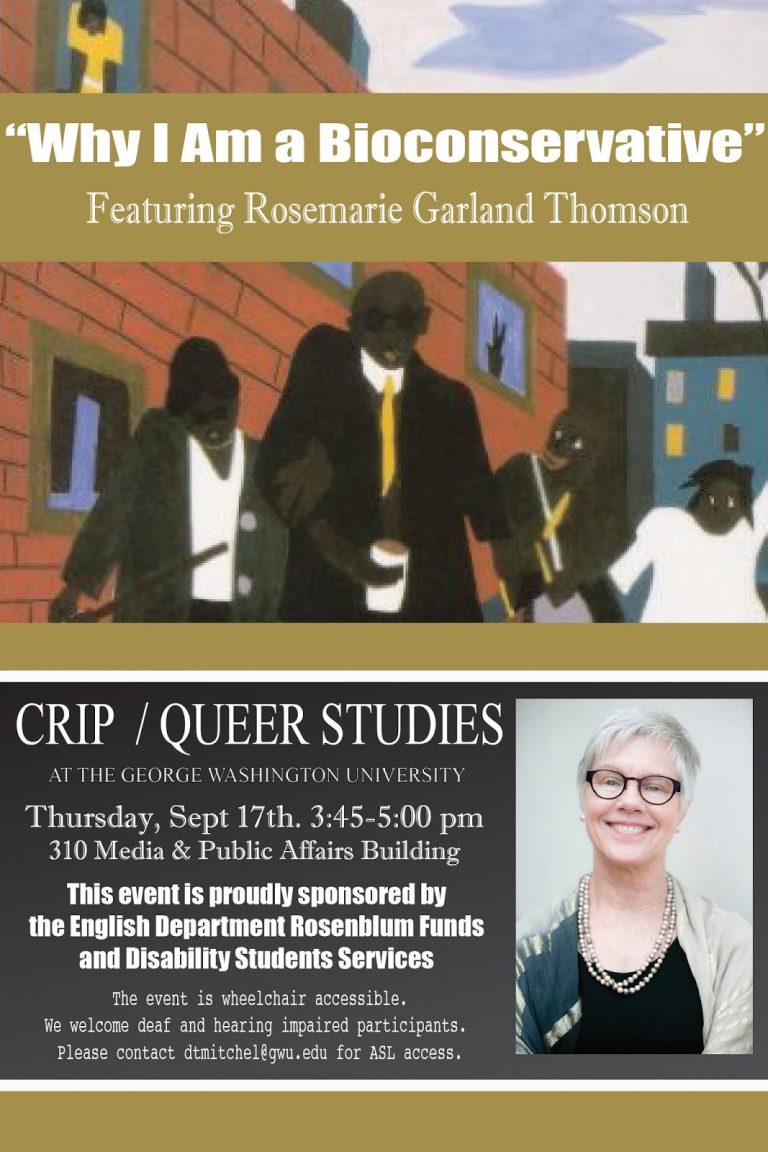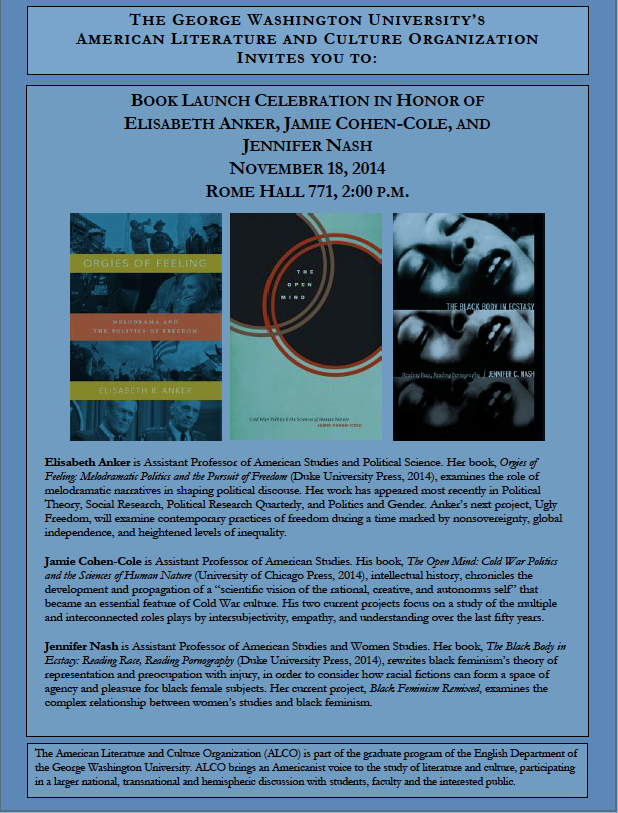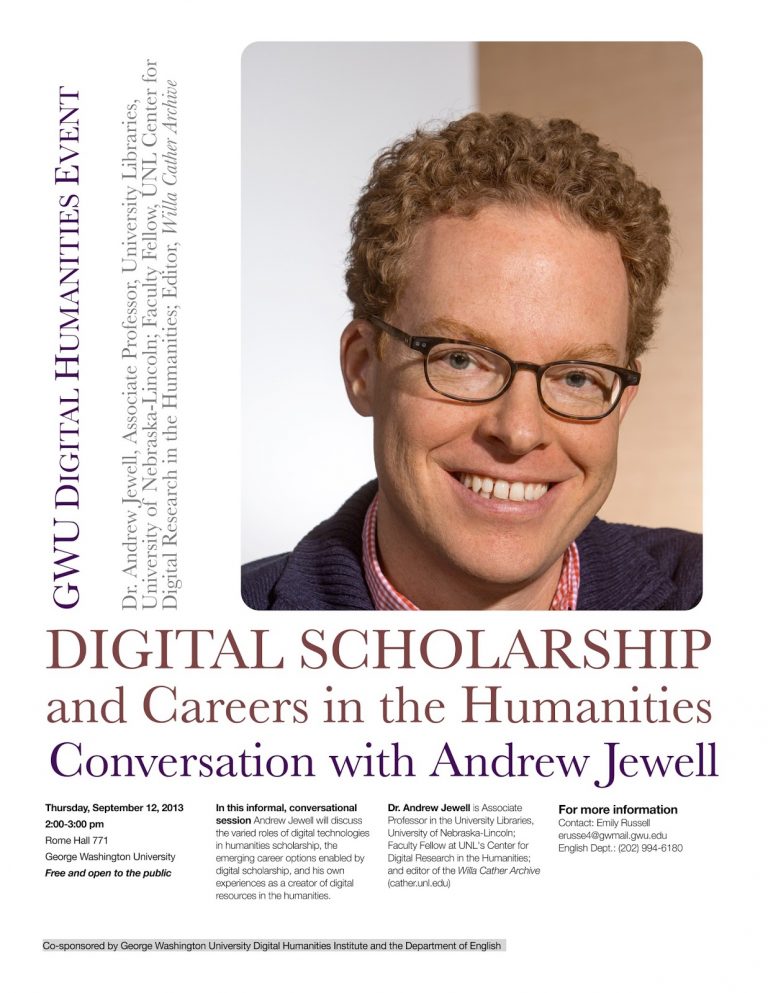Join the GW community on Thursday, April 15th from 12pm-2pm EST for the “Migration, Gender, and Rights in Comics and Literature: Linking the World” symposium! Hosted by GW’s Department of English and the Women’s, Gender, and Sexuality Studies (WGSS) program, this symposium will explore how contemporary graphic narratives and fiction about South Asia, Syria, and the Caribbean offer new insights into the experience of displacement, gender, citizenship, conflict, and human rights.
This symposium will feature:
Lopamudra Basu (University of Wisconsin, Stout), “Graphic Representations of the Syrian Refugee Crisis: Witnessing and Cross Border Solidarity in The Strange, Welcome to the New World and Escape from Syria”
Pramod K. Nayar (University of Hyderabad) “The Human Rights Graphic Novel”
Asha Nadkarni (University of Massachusetts-Amherst), “A Queerness of No Return’?: Competing Diasporic Imaginaries in Shani Mootoo’s He Drown She in the Sea”
Amit Baishya (University of Oklahoma), “Dogs of War: Afterlives of Manto in Kashmiri Graphic Productions”
About the Panelists
Lopamudra Basu is Professor of English at University of Wisconsin-Stout. She is the author of Ayad Akhtar, the American Nation and its Others After 9/11: Homeland Insecurity (Lexington Books, December, 2018). She is the co-editor of Passage to Manhattan: Critical Essays on Meena Alexander, Cambridge Scholars Publishing, UK, 2009. Her current scholarly interests include trauma studies, post 9/11 American literature. and postcolonial poetry. Her poetry has also been published in Postcolonial Text, Journal of Commonwealth and Postcolonial Studies, Barstow and Grand, The Hitchlit Review and the Poetry Calendar of the Wisconsin Fellowship of Poets.
Pramod K. Nayar teaches at the Department of English of the University of Hyderabad in India. His most recent works are Ecoprecarity: Vulnerable Lives in Literature and Culture (2019), Brand Postcolonial: ‘Third World’ Texts and the Global (2018), Bhopal’s Ecological Gothic: Disaster, Precarity and the Biopolitical Uncanny (2017), Human Rights and Literature: Writing Right (2016) and the edited collection, Indian Travel Writing 1830–1947 (2016). His essays have appeared in Modern Fiction Studies, South Asia Review, South Asia, Narrative, Celebrity Studies, Asiatic, Journal of Postcolonial Writing, Prose Studies, a/b: auto/biography studies, Biography, Image and Text and Postcolonial Text, among others.
Asha Nadkarni’s research and teaching interests include postcolonial literature and theory, transnational feminist theory, and Asian American studies, with an emphasis on the literatures and cultures of the South Asian diaspora. In addition to many articles and book chapters, she is the author of Eugenic Feminism: Reproductive Nationalism in the United States and India (University of Minnesota Press, 2014), which traces connections between U.S. and Indian nationalist feminisms. She is also the co-editor (with Cathy Schlund-Vials) of the forthcoming Asian American Literature in Transition, 1965-1996 (Cambridge University Press, 2021).
Amit R. Baishya is an Associate Professor in the Department of English at the University of Oklahoma. He teaches courses on postcolonial studies, animal studies, cinema, cultural studies and on special topics like zombies, dogs and mutants. His monograph Contemporary Literature from Northeast India: Deathworlds, Terror and Survival was published by Routledge in 2018. He is also the co-editor (along with Yasmin Saikia) of a collection of essays titled Northeast India: A Place of Relations (Cambridge University Press, 2017) and Postcolonial Animalities (co-editor Suvadip Sinha, Routledge, 2019).

